Discours d’ouverture
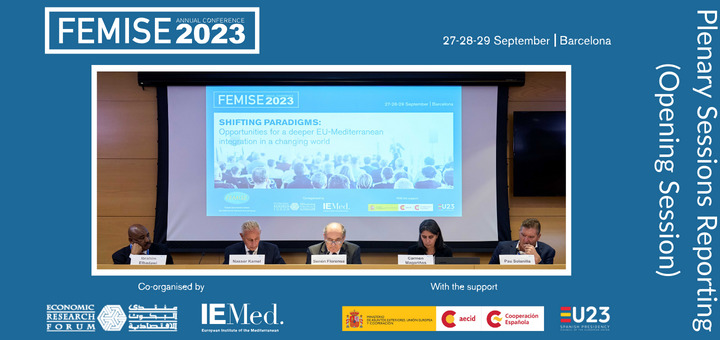
- His Excellency Ambassador Nasser Kamel, Secretary General of the Union for theMediterranean (UfM), states that, although regional integration has continuously improved over the past 10 to 15 years, the Mediterranean region remains one of the least integrated regions in the world. Ambassador Kamel states that there is a huge opportunity that exists beyond the Euro Mediterranean region, particularly when looking at the African continent as one of the fastest growing continents in the world and the potentials of the African Continental Free Trade Area (AfCFTA) that involve 1.3 billion persons with US$ 3.4 trillion of GDP. “If we group the Euro-Med region and Africa, what we can achieve together, if the right policies and approach are taken when it comes to region integration, is limitless”, stated His excellency. “ Regionalisation of our supply chain and looking towards other regions” blocks will be essential. He added that if we do not look at how the private sector can get involved in this effort to achieve more integration and more digital transition in order to become more competitive in this new globalized, but segmented global economy, we will not succeed in meeting the expectations of citizens.
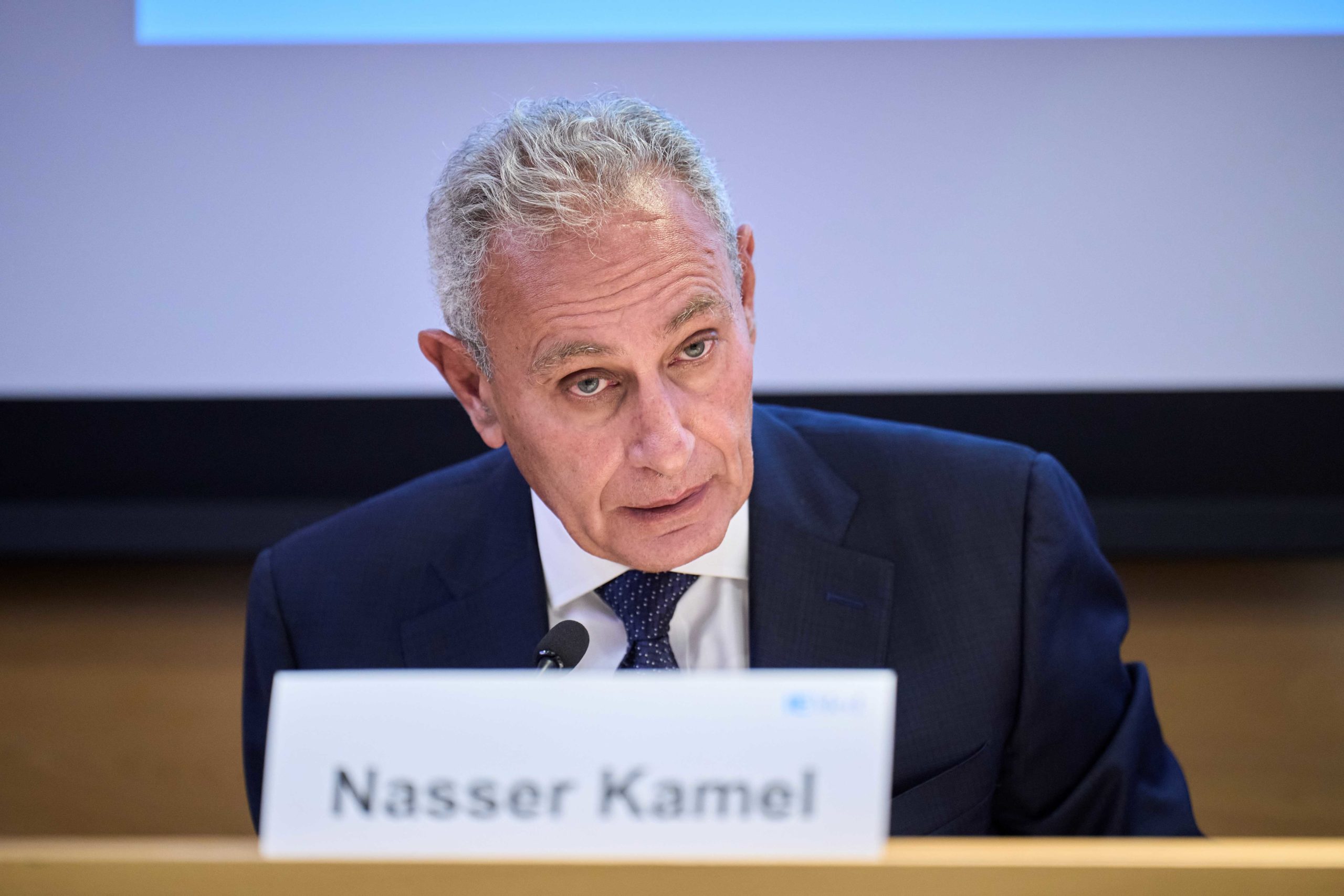 Mr. Nasser highlights the importance of Eastern gas which will allow Europe to be less dependent on other sources of natural gas. He provided the example of renewable energy and highlighted that studies clearly show that the southern region has the capacity to produce twice Europe’s actual consumption in terms of renewable energy, solar, wind energy and what goes with it in terms of green hydrogen and all other derivatives which are sources of energy, but, to do this, we need investment, interconnections and infrastructure. However, he highlighted that, we do not yet see a comprehensive regional policy that would integrate the southern Mediterranean’s potential for producing huge amounts of clean energy into the broader energy market of the Mediterranean region. To build a more inclusive development model that leaves no one behind and creates decent employment for all, there is a need to have a clear understanding of the regional dimension. Dealing with many regional challenges, such as disparities in social economic development between north and south, migration, etc. implies strengthening our economic cooperation. He concluded by stating: “Integration is an opportunity to build sustainable development and growth not only to deal with the climate emergency we face but also the incredible potential of our common sea (including blue economy)”
Mr. Nasser highlights the importance of Eastern gas which will allow Europe to be less dependent on other sources of natural gas. He provided the example of renewable energy and highlighted that studies clearly show that the southern region has the capacity to produce twice Europe’s actual consumption in terms of renewable energy, solar, wind energy and what goes with it in terms of green hydrogen and all other derivatives which are sources of energy, but, to do this, we need investment, interconnections and infrastructure. However, he highlighted that, we do not yet see a comprehensive regional policy that would integrate the southern Mediterranean’s potential for producing huge amounts of clean energy into the broader energy market of the Mediterranean region. To build a more inclusive development model that leaves no one behind and creates decent employment for all, there is a need to have a clear understanding of the regional dimension. Dealing with many regional challenges, such as disparities in social economic development between north and south, migration, etc. implies strengthening our economic cooperation. He concluded by stating: “Integration is an opportunity to build sustainable development and growth not only to deal with the climate emergency we face but also the incredible potential of our common sea (including blue economy)”
- Dr. Ibrahim Elbadawi, President of FEMISE and Managing Director of the Economic Research Forum (ERF) in Egypt delivered his inaugural speech and stated that the conference theme is an epitome of the challenges and opportunities we are experiencing.
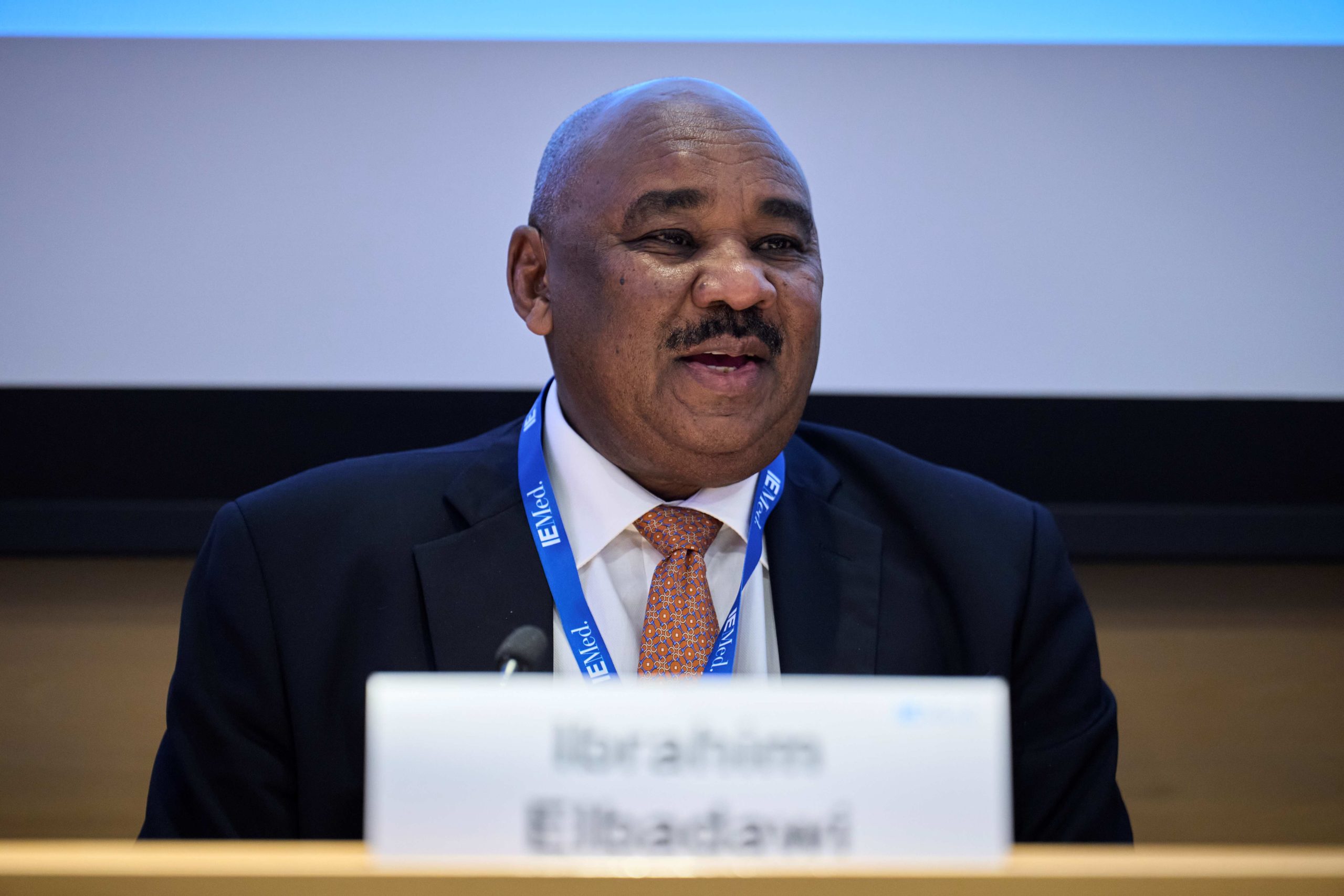 He characterised the theme by addressing 5 important pillars: first the global supply chain disruptions that have shaken the global economy, particularly in the southern part of the Mediterranean and in Africa, in terms of inflation and the endangerment of food security given the countries’ high dependence on food imports (from Ukraine and Russia). This highlights the importance of relocation and regional cooperation in a given neighbourhood including neighbours of neighbours. Second, it is about the balance between politics and economics to support the agenda of deeper economic integration. Third pillar relates to climate change, which involves an energy transition that must be meaningfully and systematically integrated into any initiative. He asserts the fourth pillar to be about regional and global value networks that must rely on technology, especially digital technology. Finally the youth of the Mediterranean will have to play a leading role in making this happen and also benefit from it while securing their future with access to employment.
He characterised the theme by addressing 5 important pillars: first the global supply chain disruptions that have shaken the global economy, particularly in the southern part of the Mediterranean and in Africa, in terms of inflation and the endangerment of food security given the countries’ high dependence on food imports (from Ukraine and Russia). This highlights the importance of relocation and regional cooperation in a given neighbourhood including neighbours of neighbours. Second, it is about the balance between politics and economics to support the agenda of deeper economic integration. Third pillar relates to climate change, which involves an energy transition that must be meaningfully and systematically integrated into any initiative. He asserts the fourth pillar to be about regional and global value networks that must rely on technology, especially digital technology. Finally the youth of the Mediterranean will have to play a leading role in making this happen and also benefit from it while securing their future with access to employment.
- Pau Solanilla, Commissioner for City Promotion, Barcelona City Council, highlights the need to rethink the global value chains that can be integrated in the Mediterranean. According to him, we must be economically connected.
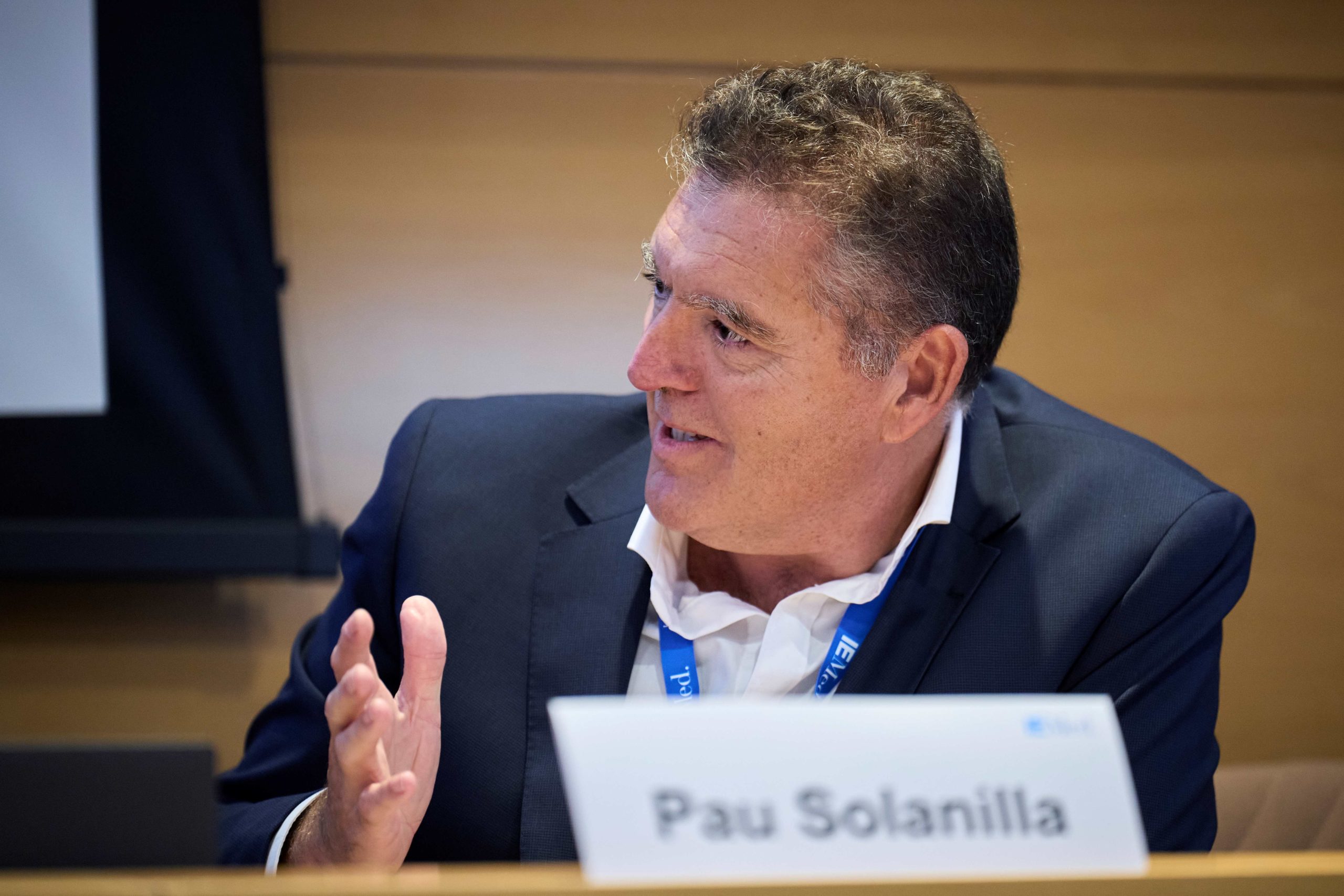 Today, we need a global economic program in the Mediterranean which is in some way an extension of the European Green Deal. A Mediterranean Green Deal is about competitiveness, sustainability, equality and social justice. As Mr Pau says, Europe should take responsibility for extending this program to the South. Economic development is above all a question of innovation, the main protagonists of which are young people and women. However, as he says, “there is a ceiling from some elites who fear unlocking the region’s talent potential”, which is another « uncomfortable truth ». Mr. Pau believes that the region has potential but that we must have the courage to remove obstacles.
Today, we need a global economic program in the Mediterranean which is in some way an extension of the European Green Deal. A Mediterranean Green Deal is about competitiveness, sustainability, equality and social justice. As Mr Pau says, Europe should take responsibility for extending this program to the South. Economic development is above all a question of innovation, the main protagonists of which are young people and women. However, as he says, “there is a ceiling from some elites who fear unlocking the region’s talent potential”, which is another « uncomfortable truth ». Mr. Pau believes that the region has potential but that we must have the courage to remove obstacles.
- Carmen Magariños, Director of Cooperation with Africa and Asia of the Spanish Agency for International Development Cooperation (AECID)
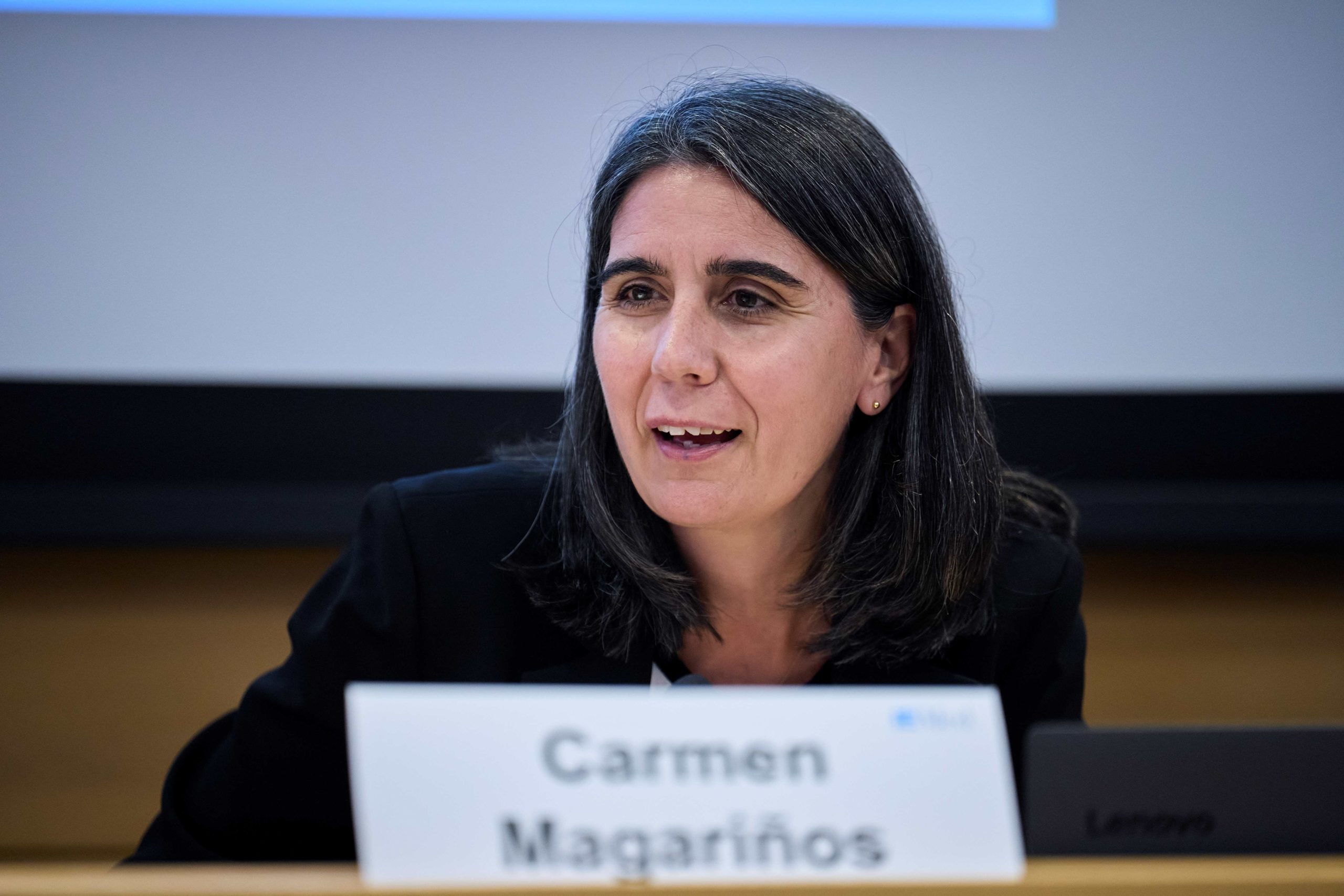 reiterates that the Mediterranean is a priority region for Spanish foreign policy which is reflected in its support for the Barcelona process of the Euromed Mediterranean Association and the 5+5 dialogue of the Western Mediterranean Forum. As Ms. Carmen states, it is time for the regional program to evolve to make way for new strategies, new objectives and a new vision adapted to the current reality of the Mediterranean. There is a need to focus on creating employment and vocational training opportunities. Spain and the European Commission will continue to support initiatives aimed at deepening the understanding of the challenges ahead and, within this framework, AECID has decided this year to provide this grant to FEMISE to develop a research and dialogue program for the promotion of inclusive entrepreneurship among young people and women in the South neighbourhood.
reiterates that the Mediterranean is a priority region for Spanish foreign policy which is reflected in its support for the Barcelona process of the Euromed Mediterranean Association and the 5+5 dialogue of the Western Mediterranean Forum. As Ms. Carmen states, it is time for the regional program to evolve to make way for new strategies, new objectives and a new vision adapted to the current reality of the Mediterranean. There is a need to focus on creating employment and vocational training opportunities. Spain and the European Commission will continue to support initiatives aimed at deepening the understanding of the challenges ahead and, within this framework, AECID has decided this year to provide this grant to FEMISE to develop a research and dialogue program for the promotion of inclusive entrepreneurship among young people and women in the South neighbourhood.
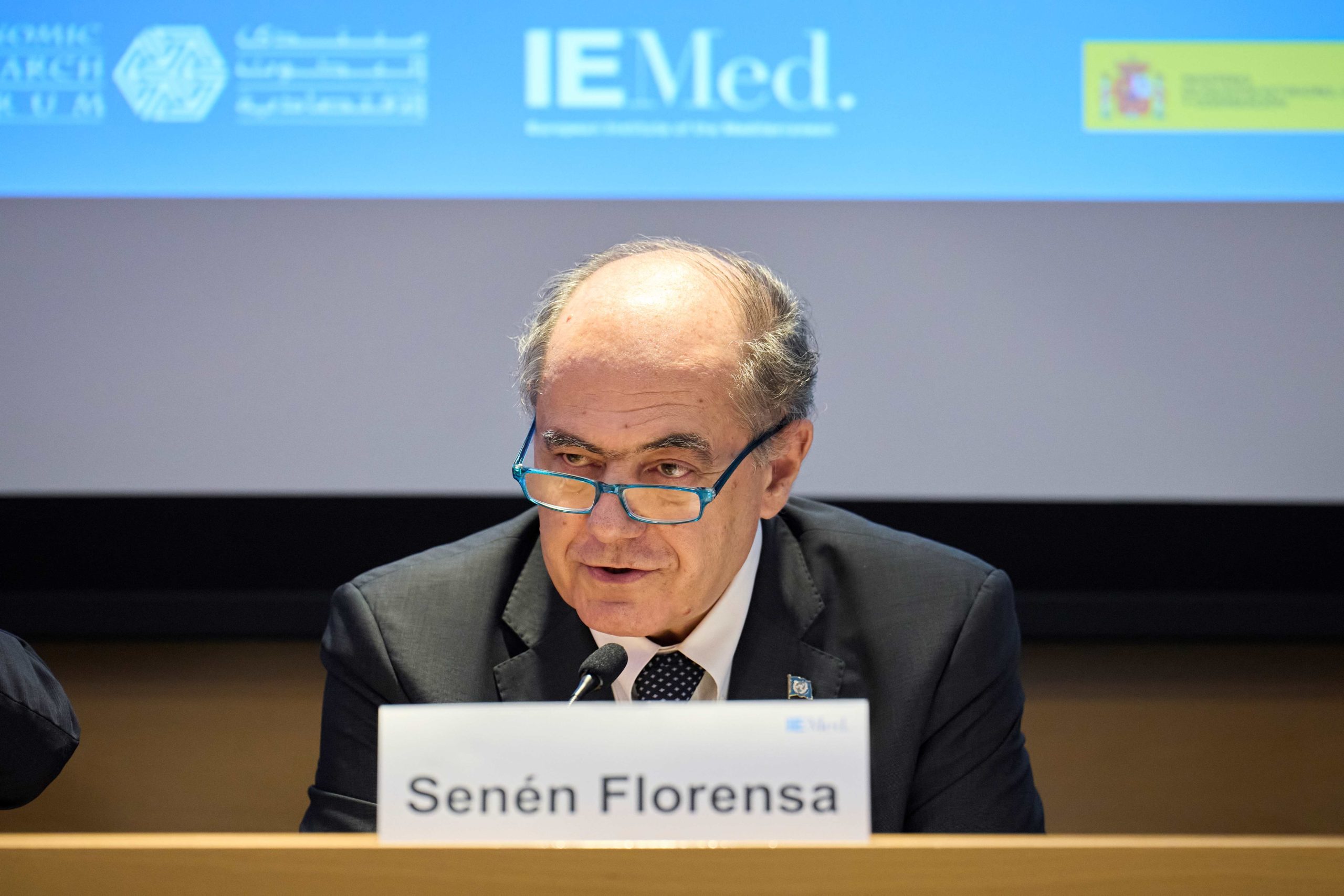 Senén Florensa, Executive President of the European Institute of the Mediterranean (IEMed), states that the region cannot be an exception in the world and it will catch up with the general trend towards more stable societies. We have all contributed to trying to foster economic growth and development in the region. This improvement was not sufficient. We need a rhythm of development greater than 7% sustained for more than 15 years to make further progress while overcoming the incredible accumulation of conflicts and wars that have hit and are still hitting the region in incredible ways. It takes time but we will persist.
Senén Florensa, Executive President of the European Institute of the Mediterranean (IEMed), states that the region cannot be an exception in the world and it will catch up with the general trend towards more stable societies. We have all contributed to trying to foster economic growth and development in the region. This improvement was not sufficient. We need a rhythm of development greater than 7% sustained for more than 15 years to make further progress while overcoming the incredible accumulation of conflicts and wars that have hit and are still hitting the region in incredible ways. It takes time but we will persist.
Watch The Full The Session :



